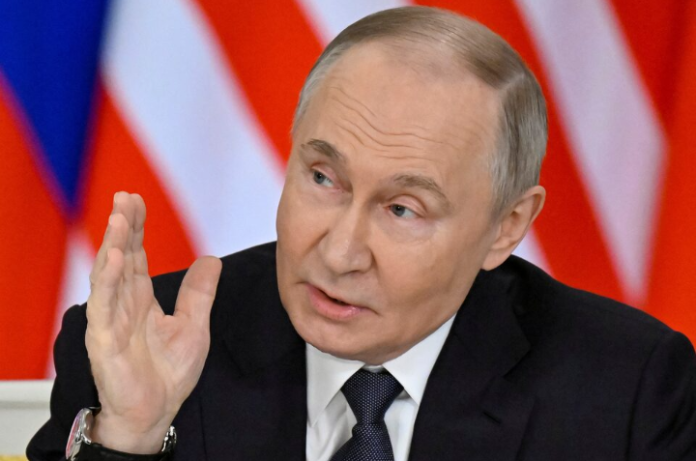As Russian President Vladimir Putin explores the possibility of a peace deal to end the war in Ukraine, a powerful and vocal group of hardline nationalists back home are demanding that the conflict continue—no matter the cost.
These ultra-conservative voices, often called “Z-patriots” after the “Z” symbol displayed on Russian military vehicles, are fiercely against any peace talk that could freeze the war along current frontlines. Some of them are even urging Russia to escalate, not de-escalate. One such figure, Pavel Gubarev, a pro-Russian activist in the Donetsk region, expressed outrage online, saying: “We surrender our weapons, we surrender our country!”
To the Western eye, it may appear that Putin is under pressure from these hawks. However, insiders close to the Kremlin reveal that these nationalist voices, while loud, operate within limits set by the government. When the time comes for peace, they’re expected to fall in line.
That said, the Kremlin carefully monitors this group to avoid unwanted turbulence. Analysts say their aggressive rhetoric can sometimes backfire, whipping up public expectations for broader military campaigns that go beyond Putin’s stated goals.
“They don’t have complete control over them,” explained Tatiana Stanovaya, a Kremlin expert at the Carnegie Russia Eurasia Center. Some Z-patriots have openly called for the capture of Kyiv, Odesa, and even attacks on NATO countries like Poland—far beyond Putin’s official war objectives.
The Kremlin remains silent on such comments but has a history of cracking down on outspoken figures when they step out of line. War bloggers with massive Telegram followings have to tread carefully. Past nationalists who challenged the Kremlin—such as Wagner Group founder Yevgeny Prigozhin and ex-FSB officer Igor Girkin—ended up dead or imprisoned.
Though nationalists have helped the government maintain public support for the war, those who refuse to soften their tone if a peace plan is announced may be silenced or jailed. “It’ll be like flipping a switch,” one Kremlin insider said. “They’ll quickly change their tune.”
Recent peace discussions led by Russian negotiators in Istanbul have stirred strong reactions. Putin himself has not attended, and figures like tycoon Konstantin Malofeyev insist the war must go on “until the complete liberation” of historically Russian lands in Ukraine.

Even Dmitry Medvedev, Russia’s former president and current deputy chairman of the Security Council, warned that a truce would only give Ukraine time to regroup—a sentiment that aligns with hardliners.
Some believe the hawkish statements from figures like Malofeyev may offer clues about how close—or far—Russia is from a real peace deal. If rhetoric from the “party of war” suddenly changes, it could mean a shift in Kremlin strategy.
For now, the government has made two rules very clear: do not criticize Putin or the military leadership. Violating these lines, as Girkin did when he accused top brass of failure, carries heavy consequences. He’s now serving four years in prison for inciting extremism.
Ultimately, while many Z-patriots sincerely believe in total victory, their future hinges on the direction Putin decides to take. If peace becomes the official path, those who don’t follow may soon find themselves muted—or removed.



